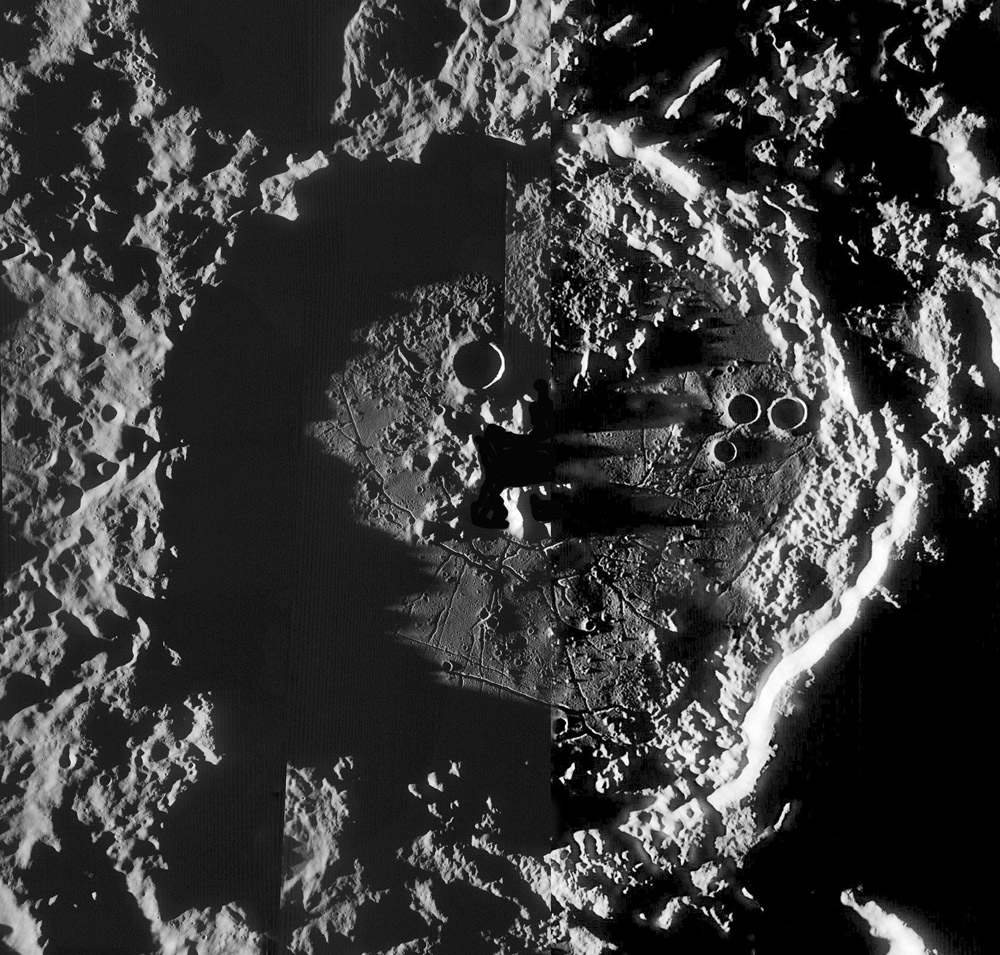Difference between revisions of "September 4, 2012"
| (One intermediate revision by the same user not shown) | |||
| Line 6: | Line 6: | ||
<em>LRO mosaic compiled by [mailto:mauricejscollins@hotmail.com Maurice Collins] using not-quite matching image strips</em><br /> | <em>LRO mosaic compiled by [mailto:mauricejscollins@hotmail.com Maurice Collins] using not-quite matching image strips</em><br /> | ||
<br /> | <br /> | ||
| − | Humboldt would be the most impressive lunar crater if it were closer to the Moon's central meridian. We have some great terrestrial [http://lpod.wikispaces.com/September+3%2C+2012 views] but it was [ | + | Humboldt would be the most impressive lunar crater if it were closer to the Moon's central meridian. We have some great terrestrial [http://lpod.wikispaces.com/September+3%2C+2012 views] but it was [[February_6,_2006|Kaguya]] that revealed the complex nature of this huge floor-fractured crater. Both of those images were somewhat high Sun so the entire crater floor and the interiors of smaller craters were well seen. This new LRO mosaic constructed by Maurice presents Humboldt under a lower Sun that emphasizes the rough texture of the floor. The right side of the crater below the triplet craters appeared as light-hued and smooth on earlier images, but here we see it is sprinkled with low hills, similar but smaller than those on the north side of the crater. The smoother terrain to the left, partly hidden by shadows, is probably impact melt, but the smooth patch at upper right is dark mare lava. It is one of the dark patches that we see when the sun is high. To really understand any place on the Moon we need multiple images - now with many images from LRO under different conditions we are getting them.<br /> |
<br /> | <br /> | ||
<em>[mailto:tychocrater@yahoo.com Chuck Wood]</em><br /> | <em>[mailto:tychocrater@yahoo.com Chuck Wood]</em><br /> | ||
<br /> | <br /> | ||
<strong>Related Links</strong><br /> | <strong>Related Links</strong><br /> | ||
| − | Rükl plate [ | + | Rükl plate [https://the-moon.us/wiki/R%C3%BCkl+60 60]<br /> |
<br /> | <br /> | ||
<p><b>Yesterday's LPOD:</b> [[September 3, 2012|Not the Mare]] </p> | <p><b>Yesterday's LPOD:</b> [[September 3, 2012|Not the Mare]] </p> | ||
Latest revision as of 19:44, 18 August 2018
Humboldt 2

LRO mosaic compiled by Maurice Collins using not-quite matching image strips
Humboldt would be the most impressive lunar crater if it were closer to the Moon's central meridian. We have some great terrestrial views but it was Kaguya that revealed the complex nature of this huge floor-fractured crater. Both of those images were somewhat high Sun so the entire crater floor and the interiors of smaller craters were well seen. This new LRO mosaic constructed by Maurice presents Humboldt under a lower Sun that emphasizes the rough texture of the floor. The right side of the crater below the triplet craters appeared as light-hued and smooth on earlier images, but here we see it is sprinkled with low hills, similar but smaller than those on the north side of the crater. The smoother terrain to the left, partly hidden by shadows, is probably impact melt, but the smooth patch at upper right is dark mare lava. It is one of the dark patches that we see when the sun is high. To really understand any place on the Moon we need multiple images - now with many images from LRO under different conditions we are getting them.
Chuck Wood
Related Links
Rükl plate 60
Yesterday's LPOD: Not the Mare
Tomorrow's LPOD: What's the Pink?
COMMENTS?
Register, Log in, and join in the comments.



